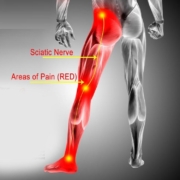The Ultimate Guide to Musculoskeletal Health: Understanding Your Body’s Framework
Your musculoskeletal system is your body’s intricate support system. It’s made up of bones, muscles, joints, tendons, and ligaments that work together to give you shape, allow movement, and protect your organs. Taking care of this system is crucial for living a healthy and active life.
Why is Musculoskeletal Health Important?
A healthy musculoskeletal system means you can:
Move freely and easily: Walk, run, jump, and participate in activities you enjoy.
Maintain good posture: Prevent back pain and other problems.
Stay strong and independent: Perform daily tasks without difficulty.
Reduce your risk of injuries: Keep your bones, muscles, and joints strong and less prone to damage.
Building a Strong Foundation: Tips for a Healthy Musculoskeletal System
Here’s how you can keep your musculoskeletal system in tip-top shape:
1. Fuel Your Body with Nutrient-Rich Foods:
Calcium and Vitamin D: Essential for strong bones. Find them in dairy products, leafy greens, and fortified foods.
Protein: Crucial for building and repairing muscle tissue. Include lean meats, fish, beans, and lentils in your diet.
Omega-3 Fatty Acids: Help reduce inflammation in joints. Eat fatty fish like salmon and tuna, or consider a supplement.
2. Move Your Body, Every Day:
Engage in regular exercise: Aim for at least 30 minutes of moderate-intensity exercise most days of the week. This could include brisk walking, swimming, cycling, or dancing.
Strength training: Important for building muscle mass and bone density. Include exercises that work all major muscle groups twice a week.
Stretching: Improves flexibility and range of motion, reducing the risk of injuries. Stretch regularly, especially after exercise.
3. Practice Proper Posture:
Be mindful of your posture: Whether sitting, standing, or lifting, maintain a straight spine and avoid slouching.
Ergonomics matter: Ensure your workspace is set up to promote good posture. Use ergonomic chairs, adjust your computer screen height, and take breaks to stand up and move around.
4. Listen to Your Body and Prevent Injuries:
Warm up before exercise: Prepare your muscles for activity with light cardio and stretching.
Use proper form: When exercising or lifting objects, use correct technique to avoid strain.
Don’t overdo it: Gradually increase the intensity and duration of your workouts to avoid overexertion.
Rest and recover: Give your body time to rest and repair after exercise.
5. Maintain a Healthy Weight:
Excess weight puts stress on your joints: Maintaining a healthy weight can reduce the risk of osteoarthritis and other musculoskeletal problems.
Combine a balanced diet with regular exercise: This is the most effective way to achieve and maintain a healthy weight.
Taking Charge of Your Musculoskeletal Health
By following these tips, you can take proactive steps to keep your musculoskeletal system strong and healthy for years to come. Remember, small changes can make a big difference!
For more information and personalized advice, consult with your doctor or a qualified healthcare professional.









